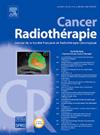放射肿瘤学中的人工智能:重塑训练,保持批判性思维
IF 1.4
4区 医学
Q4 ONCOLOGY
引用次数: 0
摘要
人工智能的日益融合正在深刻地改变放射肿瘤学,特别是通过目标体积描绘等任务的自动化。虽然人工智能有望提高治疗效率和准确性,但它也引发了重大的伦理和教育问题:我们如何才能保留核心临床技能?我们怎样才能传播那些现在很少被实践的专业知识呢?面对自动化系统,我们如何确保真正知情的患者同意?最后,我们应该如何利用自动化带来的时间?为了应对这些挑战,医学培训必须越来越多地纳入批判性思维和算法素养。照顾者与病人的关系必须保持核心地位,医疗决定仍然由人类负责。因此,人工智能应该仍然是医生手中的工具,而不是临床判断的替代品。伦理反思必须伴随着人工智能实施的每一步,确保其整合是深思熟虑的、负责任的、以人为本的。本文章由计算机程序翻译,如有差异,请以英文原文为准。
Intelligence artificielle en oncologie radiothérapie : réinventer la formation et préserver l’esprit critique
The growing integration of artificial intelligence is profoundly transforming radiation oncology, particularly through the automation of tasks such as target volume delineation. While artificial intelligence holds the promise of enhancing treatment efficiency and accuracy, it also raises significant ethical and educational concerns: How can we preserve core clinical skills? How can we transmit expertise that is now less frequently practiced? How can we ensure truly informed patient consent in the face of automated systems? And finally, how should we use the time freed up by automation? To address these challenges, medical training must increasingly incorporate critical thinking and algorithmic literacy. The caregiver–patient relationship must remain central, with medical decisions remaining under human responsibility. Artificial intelligence should thus remain a tool in the hands of physicians, not a substitute for clinical judgment. Ethical reflection must accompany every step of artificial intelligence implementation, ensuring its integration is thoughtful, responsible, and human-centred.
求助全文
通过发布文献求助,成功后即可免费获取论文全文。
去求助
来源期刊

Cancer Radiotherapie
医学-核医学
CiteScore
2.20
自引率
23.10%
发文量
129
审稿时长
63 days
期刊介绍:
Cancer/radiothérapie se veut d''abord et avant tout un organe francophone de publication des travaux de recherche en radiothérapie. La revue a pour objectif de diffuser les informations majeures sur les travaux de recherche en cancérologie et tout ce qui touche de près ou de loin au traitement du cancer par les radiations : technologie, radiophysique, radiobiologie et radiothérapie clinique.
 求助内容:
求助内容: 应助结果提醒方式:
应助结果提醒方式:


